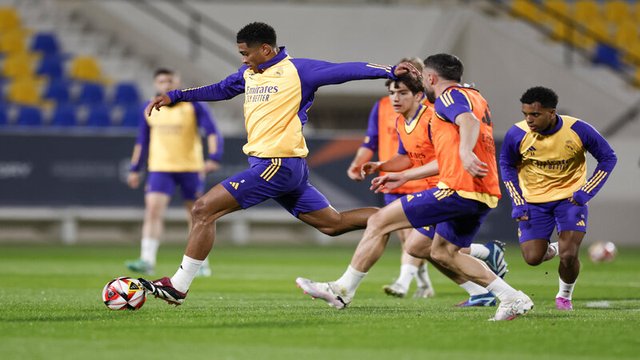
What does a sports performance analyst do?
March 13, 2024

In the dynamic world of sports, success isn't merely measured by raw talent and hard work. Behind every champion team or athlete lies a hidden force: the sports performance analyst.
These unsung heroes play a crucial role in optimising performance, strategising, and unlocking the full potential of athletes. In this blog post, we delve into the intricacies of what it means to be a sports performance analyst, and how you can enjoy a career in sports helping athletes reach their goals, by studying a qualification such as a Msc Basketball Real Madrid, Master High Performance Sport, on an Online Masters in Sports Performance.
Defining the role of a sports performance analyst
A sports performance analyst is a professional responsible for gathering, analysing, and interpreting data to enhance athletic performance. They utilise cutting-edge technology and methodologies to provide insights into various aspects of sports, including tactics, physical conditioning, and injury prevention.
Typical tasks of a sports performance analyst
Sports performance analysts engage in a diverse range of tasks to support athletes and teams. These may include:
- Data Collection: Gathering data through video recordings, wearable technology, and statistical databases during training sessions and matches.
- Analysis: Utilising software and statistical techniques to analyse performance metrics, such as speed, accuracy, and endurance.
- Strategic Planning: Collaborating with coaches and athletes to develop tailored strategies based on data-driven insights.
- Opponent Analysis: Studying rival teams to identify strengths, weaknesses, and tactical patterns.
- Injury Prevention: Monitoring workload and biomechanics to minimize the risk of injuries and optimise recovery strategies.
Where do sports performance analysts work?
Sports performance analysts can be found across various settings, including professional sports teams, sports academies, and research institutions and universities. They may work directly with athletes, coaches, and support staff or as part of a larger sports science team.
What skills are needed to be a sports performance analyst?
To excel in the role of a sports performance analyst, individuals need a blend of technical expertise, analytical skills, and sports knowledge. Key skills include:
- Data Analysis: Proficiency in statistical software and data visualisation tools to derive meaningful insights from complex datasets.
- Communication: The ability to convey technical information in a clear and concise manner to coaches, athletes, and stakeholders.
- Attention to Detail: A meticulous approach to data collection and analysis to ensure accuracy and reliability.
- Sports Acumen: A deep understanding of the specific sport(s) they are analysing, including rules, strategies, and performance indicators.
- Problem-Solving: The capacity to identify challenges and devise innovative solutions to improve performance outcomes.
How can I become a sports performance analyst?
While there is no one-size-fits-all path to becoming a sports performance analyst, aspiring individuals typically pursue a combination of education, experience, and networking.
If you choose one of the programmes mentioned in this post at Escuela Universitaria Real Madrid, you will get all three of those rolled into one. You will learn from experts in their industry, and leading sports performance analysts in the world of basketball, or in football, if you choose to study a programme such as the Master in Football Coaching or the Football Analysis Course Online. Not only that though, with a focus on experiential learning and getting the skills needed to succeed in the workplace, you will spend time within clubs and sports organisations working alongside sports performance analysts and building up your network of contacts.
In conclusion, sports performance analysts play a pivotal role in elevating athletic performance through data-driven insights and strategic interventions. By harnessing the power of technology and analytics, they empower athletes and teams to achieve their full potential on and off the field. Whether you're a sports enthusiast or aspiring analyst, understanding the nuances of this profession can provide valuable insights into the ever-evolving world of sports.